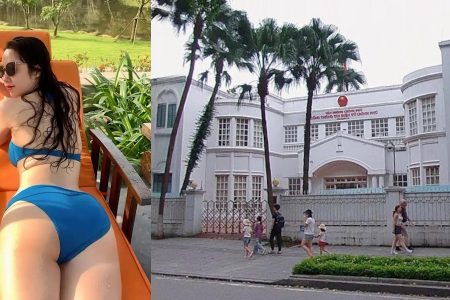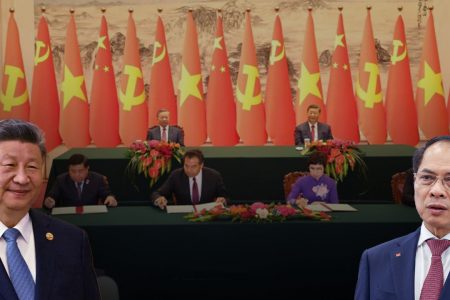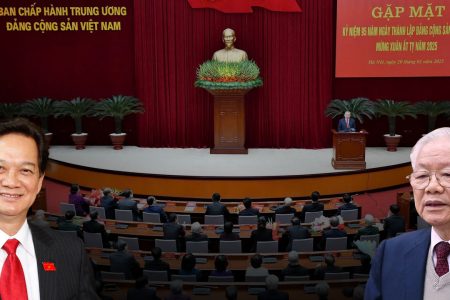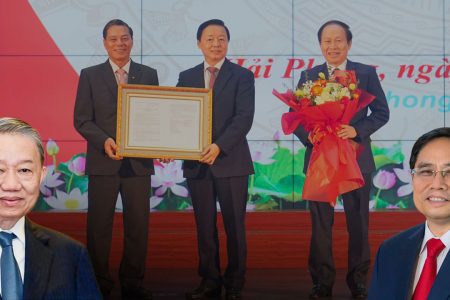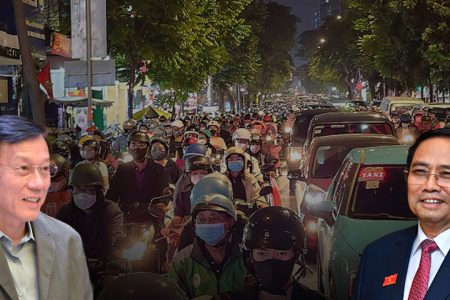
In March 2020, Tran Quoc Vuong, then Standing Secretary of the Communist Party of Vietnam (CPV)’s Secretariat, signed a conclusion on behalf of the Politburo on the continuation of renovation, development and improvement of business efficiency of the collective economy, in the spirit of the Resolution of the Plenum 5. Accordingly, the Politburo requested the need to “continue to strengthen propaganda and thorough understanding of the nature of the collective economy and cooperatives, and at the same time affirm the important position and role of the collective economy in the country’s whole economy” with socialist-oriented market economy, clearly defining collective and cooperative economic development as an inevitable trend and a task of the whole political system.”
The cooperative economy is viewed by political critics and economic analysts as a “zombie” of the imperative economy. It was this economic model that turned the South, a well-off country in Southeast Asia before 1975, into a starving economy within a few years. As a country with the most potential for developing wet rice agriculture in the world, under CPV’s leadership, Vietnam became a country that lacks rice to feed the population. People eat cassava, sweet potatoes, and raw wheet, etc… it’s terrible.
The cooperative economy began to enter its final phase in 1986. If the collective economy were not abolished, and the cooperative model was not abolished, today, the Vietnamese people would have to dig tree roots to eat instead of exporting millions tons of rice to global market.
On April 18, the People’s Daily published an article, “Ninh Binh strives to develop the collective and cooperative economy.” The article said that the Union of Cooperatives of Ninh Binh province has cooperated with Tam Diep city to organize the signing of a program to strengthen state management over activities in the collective economic sector and cooperatives. At the same time, coordinate to support the activities of the above region in a more effective direction. Thus, Ninh Binh province, the hometown of the late President Tran Dai Quang, unearthed the “zombie” of the horror period before 1986.
Earlier this month, the Voice of Vietnam VOV, the Vietnam Cooperative Alliance (VCA) conducted a seminar program with the theme “Developing the collective economy and cooperatives in the new period.” The seminar was attended by Le Minh Hoan, member of the Party Central Committee, Minister of Agriculture and Rural Development; Tran Duy Dong, Deputy Minister of Planning and Investment; Nguyen Ngoc Bao, Secretary of the Party Union, Chairman of the Vietnam Union of Cooperatives. They gushed that, “The collective and cooperative economy is in line with the development process and the global trend.”
On April 13, the party Committee of the Vietnam Cooperative Alliance was recommended by the Central Inspection Commission to be disciplined the Party. The Central Inspection Committee concluded that the violations and shortcomings of the Vietnam Cooperative Union have caused serious consequences, the risk of great loss of money and State property, and anger in the public to the point of review and disciplinary action.
Also on April 13, Kon Tum Provincial Police arrested Pham Ngoc Dien, Chairman of the Board of Directors of the Union of Cooperatives. The reason for his arrest was that he cheated and appropriated VND4.5 billion. Apparently, the “zombie” of the Cooperative has not been thrown away until today and it stinks.
There are reasons why Ninh Binh province revived this “zombie.” The first reason is that the provincial leaders do not have the knowledge and skills to follow new models, so they stick to this “zombie.” In addition, sticking to this model officials can also make a little profit, as in the case of the Chairman of the Board of Directors of the Union of Cooperatives Pham Ngoc Dien is an example.
The level of leadership at the provincial level to the central level, most of them are incompetent and lack knowledge. The only thing they have in abundance is their trickery corruption of the national assets.
Thoibao.de (Translated)



